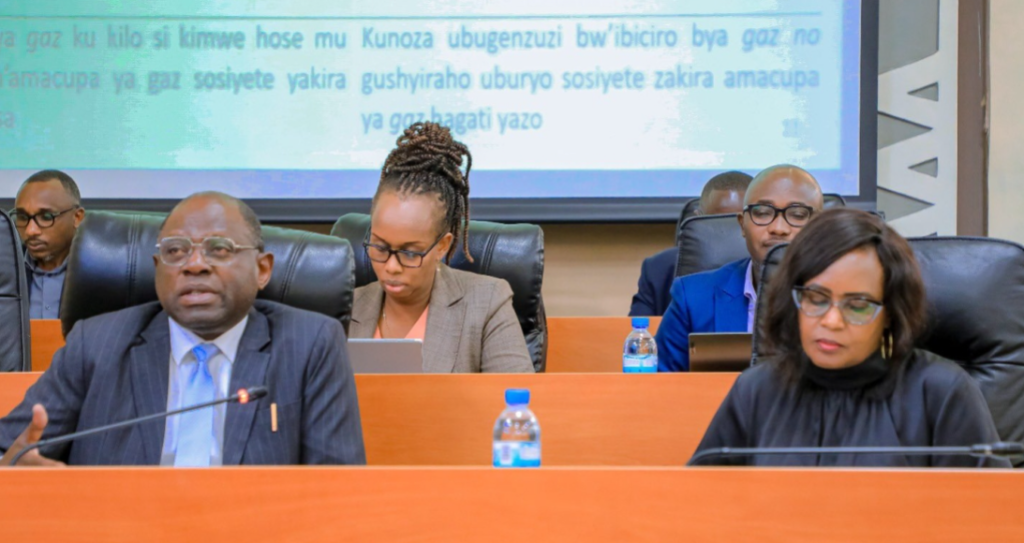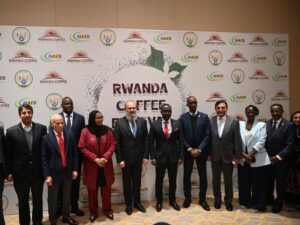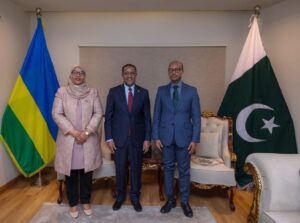Rwandan Senators Urge Stronger Reintegration Measures for Ex-Genocide Convicts to Safeguard Social Cohesion

Kigali, The Gulf Observer: Members of Rwanda’s Senate are calling for urgent improvements in the reintegration process of ex-genocide convicts, highlighting the need to adequately prepare both released individuals and their receiving communities. The appeal was made during a Senate session on Monday, August 4, where the Senate Committee on Foreign Affairs, Cooperation, and Security presented a report on its oversight activities aimed at combating genocide ideology and fostering national unity.
According to data from the Rwanda Correctional Services, approximately 65,000 genocide convicts—representing 75 per cent of those sentenced for crimes related to the 1994 Genocide against the Tutsi—have already completed their prison terms. Another 22 per cent remain incarcerated, while 4,295 convicts have received life sentences, and 457 are currently imprisoned for promoting genocide ideology.
Committee Chairperson Senator Hadija Ndangiza Murangwa warned that reintegration without proper psychological and community preparedness risks undermining reconciliation. “Some convicts attend healing sessions organized by faith-based organizations, but others reject participation, claiming that serving their sentence was sufficient,” she said.
She cited a poignant example of a child who had believed his father was wrongly imprisoned, only to later discover, following the father’s release and participation in healing sessions, that he had indeed committed genocide. “This creates an emotional crisis within families and underscores the need for pre-reintegration counselling for both convicts and their communities,” Senator Ndangiza explained.
She also expressed alarm at the persistence of genocide ideology among youth under 30, despite ongoing national efforts in peace education. “Young people are still being influenced by adults who harbour divisive ideologies,” she noted.
Although Rwanda’s unity and reconciliation rate stands at approximately 95 per cent, the remaining five per cent—equivalent to over 700,000 individuals—remains a significant concern. “That 5 per cent is not negligible. It is a segment of the population we cannot afford to ignore,” Ndangiza said.
Unity and Resilience Forums Labeled Ineffective
The committee also assessed the Unity and Resilience Forums, designed to combat genocide ideology and promote healing. However, the forums were described as “weak and ineffective” due to inconsistent implementation and poor understanding of their guidelines, especially at district and sector levels.
Senator Evode Uwimana criticized the infrequency of these gatherings, which currently occur only once a year. “This is insufficient. Youth, who make up 60 per cent of the population, are largely absent from these dialogues, which is a major oversight,” he said.
Existing Reintegration Measures Commended
Despite the challenges, the committee acknowledged notable government efforts, such as the designation of Nyamasheke Correctional Facility (for men) and Nyamagabe Facility (for women) as preparation centres for inmates six months before their release. These are supported by healing journeys and community dialogues organized in partnership with faith-based and civil society organizations.
Rwanda has also established its first Reintegration Centre, or halfway home, which will serve as a transitional facility for inmates nearing the end of their sentences to gradually reintegrate into society.
The Senate concluded with a call for enhanced and innovative strategies, including regular community engagement, tailored psychological support, and strengthened leadership training for local forums, to ensure the reintegration process reinforces Rwanda’s hard-won unity and guards against the resurgence of divisive ideologies.


